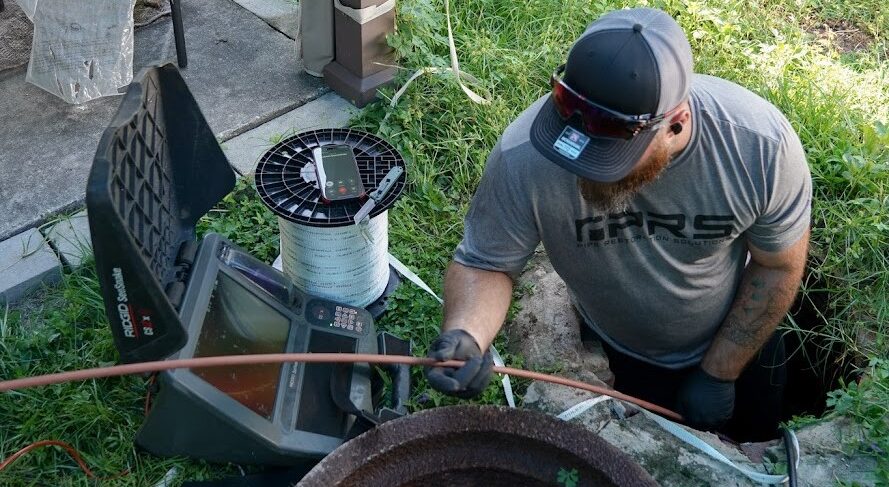
Plumbing malfunctions can be catastrophic for homes and businesses. Whether you are proactively responding to a routine inspection or you’re reacting to an unavoidable plumbing issue, you may have to make some intimidating and costly repair decisions. Don’t despair. In this blog, we’ll help you measure the benefits and drawbacks of trenchless sewer repair vs traditional repair methods.
What Is Trenchless Sewer Repair?
Trenchless sewer repair is a plumbing repair method that enables technicians to use existing access points, such as a toilet, roof vent, or cleanout, to inspect and reline damaged pipes. This work can be done without extensive excavation and disruptions to the property. It’s ideal for households, businesses, and other commercial properties that may face income loss or additional overhead expenses by vacating the property.
With this trenchless sewer repair, technicians use epoxy to create “a pipe within a pipe,” restoring existing pipes without lengthy and costly digging, excavation, and subsequent repairs. The process begins with a simple, but thorough camera inspection. As long as the inspection can be completed, you’re a likely candidate for trenchless sewer repair.
What Is Traditional Sewer Repair?
Traditional sewer repair is the classic pipe repair method. Plumbing contractors will dig up large portions of the surrounding property to identify the issue, extract and dispose of the old material, and install new pipes. Traditional pipe repair is a major construction project that often causes secondary exterior and interior damage to your landscaping, flooring, and surrounding property. The water for the property also has to be turned off for the duration of the project, so all occupants need to vacate and businesses cannot open.
This disruption can be particularly problematic for high-rise condominiums, homeowners associations, families with pets and children, small business owners, and utility providers who may need to cease operation during that time.
Comparing Trenchless Sewer Repair vs Traditional
|
Trenchless Sewer Repair |
Traditional Sewer Repair |
|
|---|---|---|
|
Cost Comparison |
|
|
|
Level of Disruption |
|
|
|
Project Time |
|
|
|
Environmental Impact |
|
|
|
Durability |
|
|
Pros and Cons of Trenchless Sewer Repair
Comparing the pros and cons of trenchless sewer repair can help you make an informed and confident decision that aligns with your needs.
Pros
- Limited or no digging necessary due to existing access points
- Often has lower labor and ancillary costs
- Doesn’t disrupt your interior plumbing system, so you can continue to use the property
- Extends the lifespan of your existing pipes
- Significantly quicker than other repair methods
- Adaptable to different plumbing issues as long as the pipes can be cleaned
Cons
- May not work for all properties
- Can’t be used if the existing pipes are collapsed or otherwise too far gone
Pros and Cons of Traditional Sewer Repair
Trenchless vs traditional sewer repair isn’t always a clear-cut decision, so it’s a good idea to consider the pros and cons of both.
Pros
- Ideal for severe damage where other repair methods wouldn’t work
- More flexibility to compare different materials
- Can last 50 years, depending on your location
Cons
- Significant restoration costs to the property after the project is complete
- More downtime during the project, as you cannot continue to use the property
- Heavy machinery required
Consult Pipe Restoration Solutions for Reliable Pipe Repair with Transparent Pricing
At Pipe Restoration Solutions, we’re proud to have built the largest small-diameter pipe relining company in the nation. This far-reaching network enables us to provide a full suite of top-notch services in Florida and California and pipe relining nationwide.
Reach out to our team today to learn more about our minimally invasive trenchless sewer repair solutions. We’ll always be honest and transparent with you, taking the time to thoughtfully compare trenchless sewer repair vs traditional sewer repair for your specific situation.




